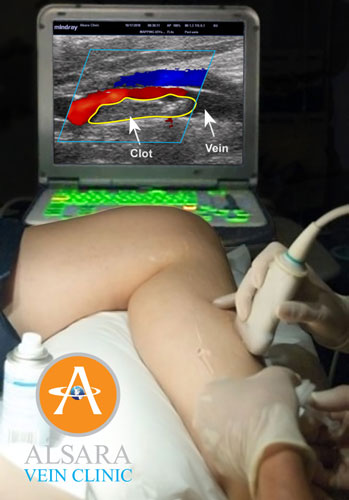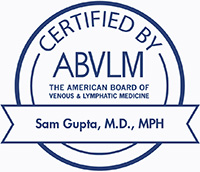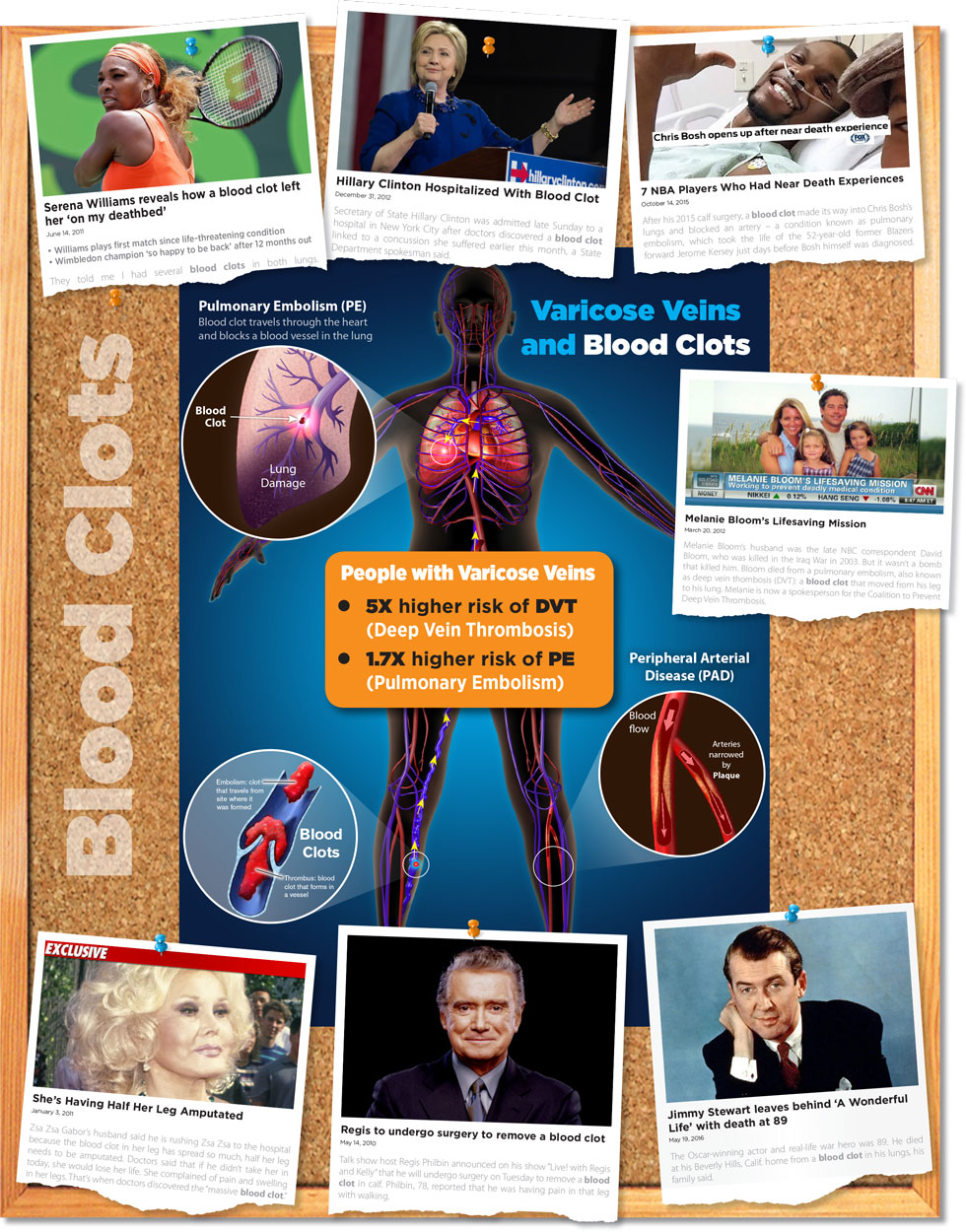Blood Clots & Varicose Veins - 5X Higher Risk
Blood Clots & Varicose Veins - 5X Higher Risk
Suspect a Blood Clot in Leg?

- Alsara Vein Clinic offers same-day appointments
- Detailed scan for Deep Vein Thrombosis (DVT) as well as Superficial Vein Thrombosis (SVT)
The best test currently available for thrombosis (clot) in the legs is a color flow duplex ultrasound. At Alsara Vein Clinic, we utilize very high-resolution ultrasound capable of diagnosing clots in even the smaller deep veins in the calf.
 Dr. Gupta is certified by the American Board of Venous and Lymphatic Medicine. All clinical staff has specialized education and training for the management of venous diseases including all types of blood clots. Urgent Care centers, Primary Care Providers, Patients, and their relatives routinely call us for same-day appointments.
Dr. Gupta is certified by the American Board of Venous and Lymphatic Medicine. All clinical staff has specialized education and training for the management of venous diseases including all types of blood clots. Urgent Care centers, Primary Care Providers, Patients, and their relatives routinely call us for same-day appointments.
At Alsara Vein Clinic, we treat vein problems all day, every day. Unlike duplex ultrasound performed at an Emergency Room that focuses only on deep vein thrombosis (DVT), we check for DVT and SVT. Do not let yourself or your loved one be another victim of an undiagnosed dangerous blood clot.
Call us at 816-396-0245 for a Consultation
Superficial Thrombophlebitis and Deep Vein Thrombosis (blood clots) are other potential complications from varicose veins.
Varicose veins are prone to developing Superficial Thrombophlebitis (SVT) as well as Deep Vein Thrombosis (DVT). Superficial Thrombophlebitis is characterized by redness of the skin, tenderness, and pain along the affected superficial vein just below the skin surface. As opposed to deep veins, blood clots in the superficial veins are less severe and generally do not break off and go to the lungs.

Deep Vein Thrombosis or DVT on the other hand is a more severe condition. The vein in the leg still becomes inflamed and forms a blood clot. However, Deep Vein Thrombosis has the potential to cause a “pulmonary embolism” – a potentially life-threatening condition – if the clot breaks loose and travels to the right side of the heart and eventually migrates to the lungs.

- VEIN DISEASE - OVERVIEW
- Varicose Veins
- Chronic Venous Insufficiency
- Blood Clots
- Spider Veins
- Restless Leg Syndrome
- Edema (swelling)
- Infection / Leg Ulcers
- Neuropathy
Amy Hallquist - Blood Clots
Blood Clots - 5X Righer Risk
- Blood Clots:
- Embolism: a blood clot that travels from the site where it was formed
- Thrombus: a blood clot that forms in a vessel
- Deep Vein Thrombosis (DVT): 5 X higher risk of DVT in people with Varicose Veins
- Pulmonary Embolism (PE): blood clot travels through the heart and blocks a blood vessel in the lung
- Peripheral Arterial Disease (PAD): 1.7 X higher risk of Pulmonary Embolism (PE)
A landmark study was published in JAMA, a very reputable medical journal, that demonstrated how people who have varicose veins have five times (5X) higher risk for clots in the deep veins that can be potentially fatal. Those blood clotscan take off and get lost in areas like the lungs and cause conditions like Pulmonary Embolism.
In the initial stages of varicose veins, people may only see some spider veins or ropey veins, and sometimes there are no visible veins. You may have pain, heaviness, tiredness, restless legs, leg cramps, etc. More advanced stages are when you have skin changes, discoloration, bleeding, ulcers that are slow to heal, and blood clots.
Read More about Potentially Deadly Blood Clots
Varicose Vein Treatments are coved by insurance including Medicare and Medicaid


 Varicose veins increase the risk of deep vein thrombosis (DVT) by five times
Varicose veins increase the risk of deep vein thrombosis (DVT) by five times